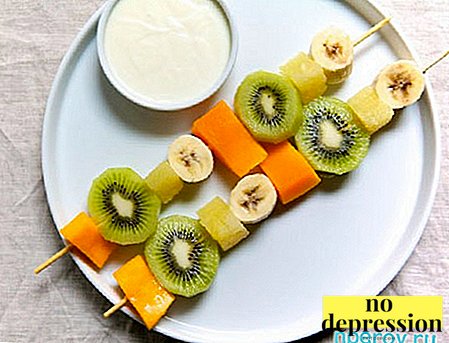Do you know how many times the word "truth" was entered into the search engines? Over the past month, almost 500 thousand times. Half a million requests and 22 million responses to a question that has been of interest to people for thousands of years. Only all the answers are parts of a huge puzzle that connect and form the real Truth. How is it different from the truth? Why do we need true knowledge? And what are the 10 questions worth asking yourself to discover your true beauty? Perhaps the truth does not have to look far, because it is inside us.
What is truth
Truth is objective knowledge that corresponds to reality and does not depend on the appraisal opinion of the knower. This is an abstract concept that exists in human knowledge at a given time. Truth cannot be described in words, since our language is very limited. It cannot be seen or felt, it can be realized or comprehended. Knowledge itself and reality understood can be called truth.
Auxiliary criteria help to establish the truth of the statement - the method of its verification and justification. This is objectivity, concreteness, social practice, compliance with the laws of nature, consistency, clarity. But the main criterion truth is not recognized by knowledge itself, but by opportunity to put it into practice: all that is confirmed - true, refuted - false. Although this criterion is also limited, because practice is tied to knowledge, which is constantly supplemented and adjusted.
In Russian, truth and truth are not only written differently, but have different meanings. Although the dictionaries interpret these words as synonyms, there are still differences:
| True | true |
|---|---|
| gives knowledge of the general laws of being | gives knowledge of individual fragments of the overall picture |
| objective | subjective |
| the only | everyone has their own |
| is a philosophical and religious category | refers to everyday notions |
| sublime | earthly and everyday |
Types of truth
It seems that the truth is indestructible. But it is not. It changes with the knowledge of the world around us. For example, in the Middle Ages, knowledge of anatomy was very different from modern, but then they were considered true. With the development of medicine, they have been refuted and today are considered a delusion. That is, human knowledge is limited to a specific point. Hence, there are two types of truth:
Relative - a philosophical concept or incomplete knowledge of the subject, which can be supplemented or disproved by new evidence. It corresponds to the level of development of science, depends on the place, time and conditions of research, changes with the improvement of practice.
Absolute - current, complete understanding of the subject. This is the source of everything that surrounds us. It is static and stable, expressed in a simple, concise form, can not be refuted or challenged, but to the end it is only in exceptional cases. It is more common in the exact sciences. For example, mathematical axioms.
Truth in science
Throughout history, scientists, philosophers and religious figures have tried to learn the truth. It can be said otherwise: the history of sciences is the history of the search for truth.
Truth in philosophy
The search for truth is one of the main tasks of philosophy. The first attempts were made in times of Aristotlewho claimed that "not everything that is represented is true." Important for the study of the validity of the conclusion made Plato. Plato suggested that truth can exist outside of knowledge: it can eventually pass into knowledge or find other forms of existence.
As science developed, philosophers' points of view diverged more and more. German thinker E. Kant considered truth the correspondence between knowledge and the subject itself. And the French philosopher Rene Descartes considered the truth only that which does not give rise to doubts. In the XX century, the debate about the truth of knowledge does not subside. But modern research methods do not provide confidence that the data obtained correctly assess the objects of knowledge.
Philosophers put forward new signs of distinguishing true knowledge from erroneous ones — this is sensual experience, clarity and distinctness, efficiency, practical application, and unanimous agreement with the statement.
From the point of view of philosophy, apart from relative or absolute, there is truth:
- Subjective - does not exist besides man and humanity. A particular case of subjective truth is true. For example, we come from the street and say it’s cold there. This is a subjective statement.
- Specific - knowledge, true in certain conditions. For example, the statement "water boils at a temperature of 100 degrees" is true only when measuring the temperature in degrees Celsius.
- Outdated - reliable for a certain period of time and no longer relevant. For example, for a long time the knowledge that the Earth was flat was accepted as true. Today it is a delusion.
Truth in religion
The irrefutability of being ranks first in religious studies. Like philosophy, religion does not have accurate evidence of its hypotheses or theories. And where knowledge is powerless, faith is legitimate. The belief that can not be proved mathematically, but can not be challenged.
According to theologians, the main mistake of knowledge is that the truth is not “what”, but “Who”. God is the source of being, and, therefore, the irrefutable existence. Therefore, in religious worldviews there is no other truth, nor can there be.
In religious teachings there is a concept of spiritual truth - this is unambiguity in judgments, which is consistent with the human essence. Truth is that which can be voiced, and spiritual truth is that which can be felt within. She does not need to be announced.
What is true beauty
Once it was believed that the criteria of beauty are so strong that only art education will teach to distinguish beauty from deformity. But today, most people believe that external beauty is a relative concept, surrounded by stereotypes. But true beauty is manifested by spiritual qualities: inner harmony, honesty with oneself, the ability to empathize, emotional intelligence.
Three simple actions will help to find the inner beauty inside you:
- Keeping a diary is a powerful conversion tool and a great way to get to know yourself. When thoughts become words on paper, they become material. That is what we think can be seen. There is no need to build beautiful phrases or mull statements. The beauty of the diary is that it helps to understand yourself, unearth your pains and overcome fears.
- The inner child lives in every adult, so it’s worth to meet him and talk "heart to heart". In psychotherapy, there are several ways to arrange this imaginary meeting, but the easiest way is to simply ask him to come. It is worth asking him what he feels, let him speak, have fun and cry together. And the main thing - to make it clear how important it is to you.
- Conscious meditation gives a healthy body, a healthy mind, calm, harmony and happiness. If earlier this practice was considered exotic and the skill of Buddhist monks, today it is available to many. Over time, negative emotional reactions are replaced by positive ones. Depression, apathy, irritability are gone, mindfulness, concentration, attentiveness are practiced.
All types of psychotherapy lead to a meeting with oneself, inner maturity, harmony. If you are not planning a visit to a psychotherapist, these questions will help you know yourself:
- How many books have I read in the last year?
- Whose fate do I live?
- Am I doing work or a favorite thing?
- What is my hobby?
- What will happen to me in five years if I live like this?
- What prevents me from living the way I want?
- What are the reasons for my anger and discontent?
- How can I help people?
- I can focus on the main thing?
- I am me?
The truth of the dispute: how important is it?
The assertion that truth is born in controversy also causes a lot of controversy. Discussion is an art that not everyone owns. Any sloppy word can destroy a family, friendship, a collective, and argue those who turn them into sworn enemies. Simple rules will help to express your opinion correctly and not to go beyond the limits of reasonable:
- The truth does not always correspond to the facts.
- If you turn to the main values, you can turn the argument in the search for truth.
- Sometimes reliability is not worth losing trust relationships.
- Many argue simply because they prefer disagreement.
- In endless debate, truth is not born, but the true face of a person.
- If you argue with an idiot, he probably does the same.
- The more you connect emotions, the less chances to defend your truth.
- Sometimes the ability to hear and listen will help to resolve the dispute better than any argument.
- The pure truth must be presented correctly.
- The best alternative to dispute is dialogue.
A sure sign that the dispute was fruitful is a feeling of mutual agreement and a greater understanding of the opponent.
Findings:
- Truth is a reflection of objective reality and its reproduction as it exists by itself.
- True beauty can be found in oneself with the help of simple practices.
- Dispute leads to truth only when conducted correctly and with respect.



